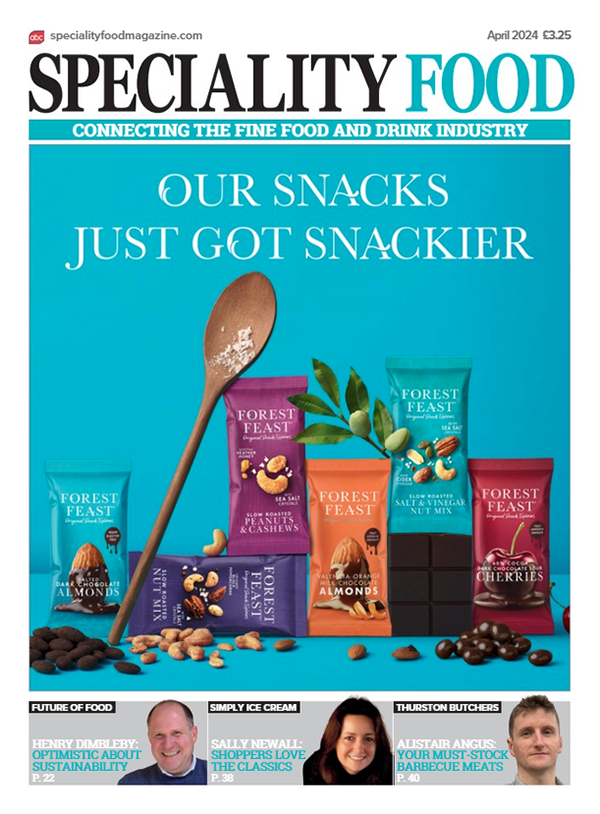“Together we stand; divide, they will get us”

- How one cheese shop supported locals in lockdown
- Rory Mellis, IJ Mellis: “Local businesses have a chance to flourish”
- Why we should be proud of the cheese industry’s response to Covid
- The joy of cheese grading
- “Keeping the faith”
I was invited to give a series of lectures on British cheese in January to the Masters students at the University of Gastronomy in Bra Italy, and had planned to spend December leisurely researching and writing my presentation
Instead, Christmas conspired against me and suddenly I had just seven alarmingly short days to prepare. Unlike my usual masterclasses I couldn’t wing it or hope to bamboozle them, as after three years of study they would know more about the technical side of cheese than I ever will and, addressing me as professor, despite my protestations, added to my sense of panic.
However, the research highlighted to me the enormous difference between how cheesemakers work together in Europe versus in the UK, and how this will affect the future of British cheese making. In the last two years we have lost four well-known names in the Cheddar world, including Denhay, and as margins and markets get tougher, rougher and tighter, how many others will face the chop?
Historically, European farmers owned a few cattle or goats and made a handful of cheeses to sell at local markets. Over the centuries, with the help of itinerant monks and invading armies, they learnt to work together, sharing recipes, pooling resources and forming marketing groups, cooperatives and consortiums. Many of these have become huge powerful groups responsible for marketing, quality control, distribution, even political lobbying, and most have attained PDO status.
Their marketing is so effective that most people when buying the great European classics never even think to ask who makes it, they just buy from their favourite shop trusting they will have the best. They lobby the PDO system and the EU dairy committees, plus they can control the price of feed, distribute worldwide and create stunning photography and marketing material.
Cheese in the UK, however, had a very different upbringing. It was still produced as a means of preserving milk, but the land was in the hands of large landowners with big dairy herds who had dairy maids to make their typically large cheeses which were more likely to be sold to a merchant rather than at a market. In the early 1700s, one syndicate had 16 ships carrying Cheshire from Liverpool to London.
Then in the 19th century the industrial revolution hit the cheese industry. The railways transported liquid milk from farm to city, and in the 1870s factories started to spring up in the North as it was realised hard cheeses could be produced in factories. These two events relieved many farmers of the burden, drudgery and stress of cheese making, but also reduced the number of traditional producers of our great cheeses. Then followed two world wars that further decimated the cheese industry.
Today we only have 15 cheeses (three are no longer made, five are made by one producer) protected by PDO status which also funds marketing initiatives, while Spain has 23, France 60 and Italy 76. There are only five producers of Stilton, and the biggest Cheshire maker is based in Shropshire so unlikely to encourage the other three producers to form a PDO. By the by, to gain a Single Gloucester PDO you simply have to own a Gloucester cow!
Compared with the clout of European cheesemakers, no wonder British producers struggle to compete here and abroad. Added to this our milk is more expensive, so looking to the future I think the cheesemakers and industry in general need to stop being so independent and start working more closely together, marketing together, sharing resources, sharing stands at shows and advertising together.
more from Cheese Talk
-
“Don’t sway to populists”
25 August 2016 Cheese TalkWith consumer demands continually fluctuating and markets changing on a yearly basis, it’s almost impossible to predict what the new craze or sudden ‘loser’ will be. -
“Making a spectacle of yourself”
12 July 2016 Cheese TalkUntil a few weeks ago I was feeling rather smug about my moved to New Zealand, basking in a four month-long near-drought with autumn temperatures rarely falling below 20ºC -
“Cheese magic – it’s in our culture”
17 May 2016 Cheese TalkWe all know that cheese is magic… really. Some milk, some rennet, some starter culture, some salt and maybe sometimes some controlled mould, and hey presto you have thousands of different cheeses





